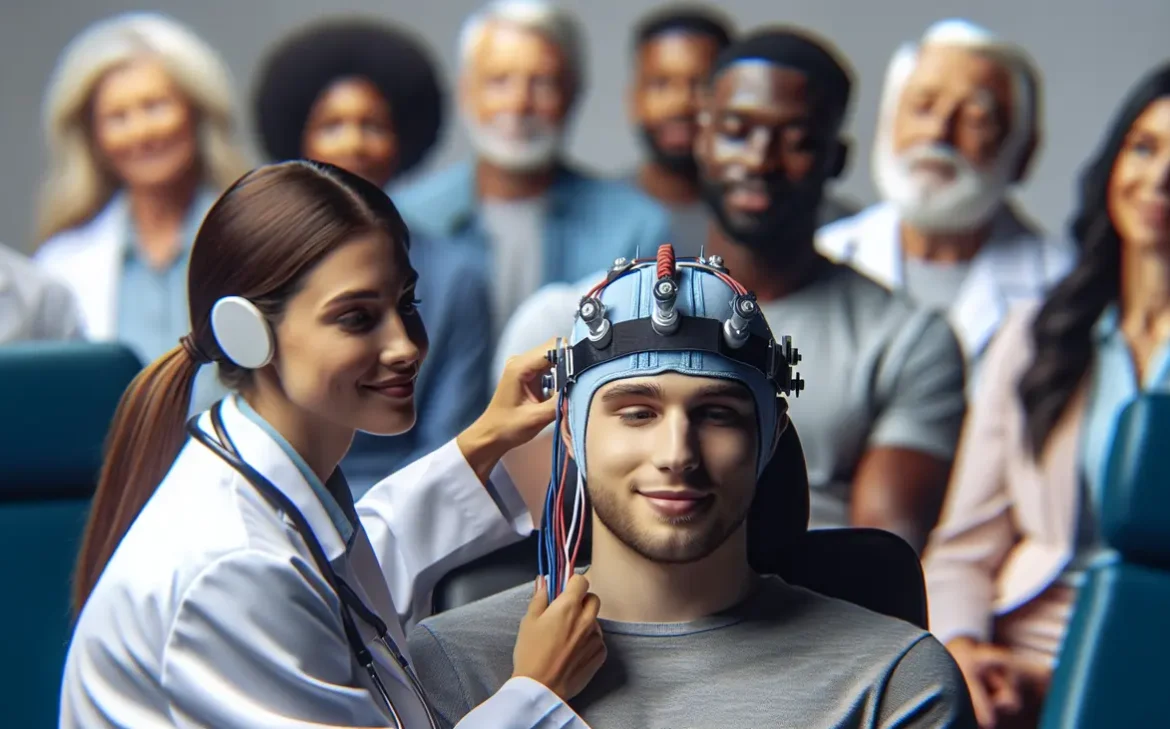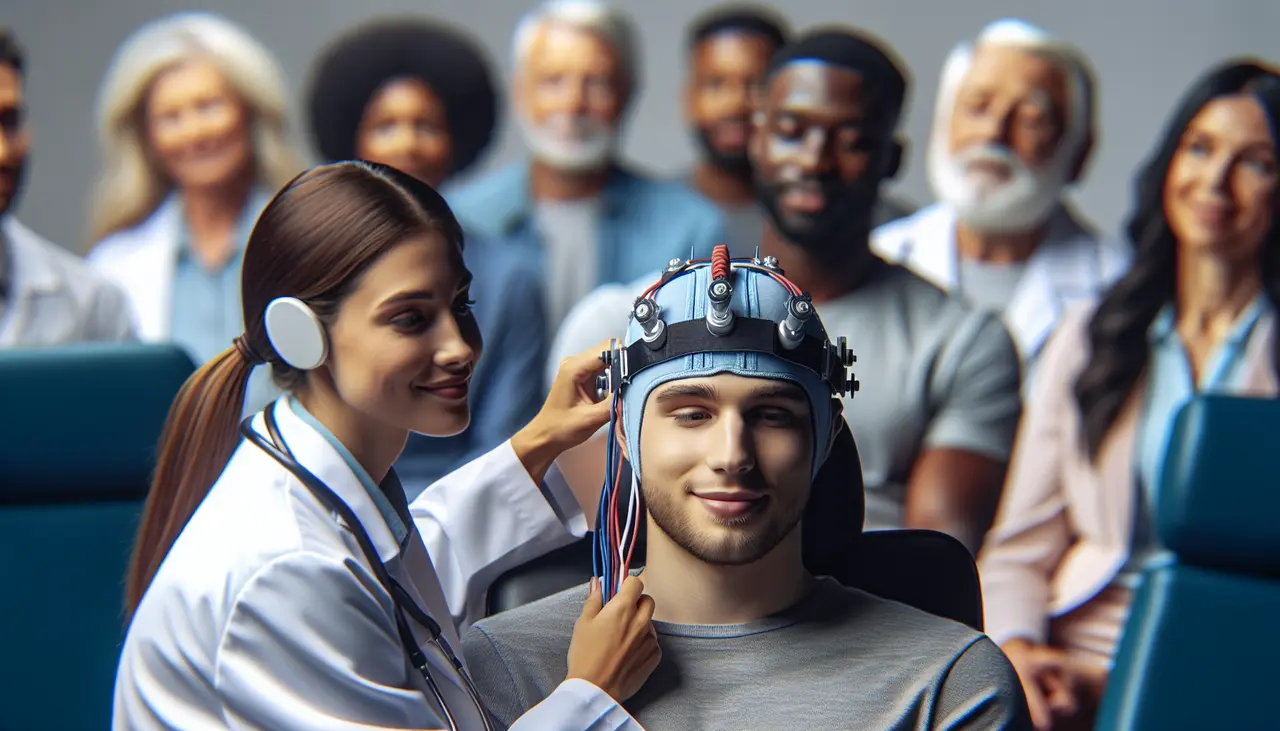Transcranial Magnetic Stimulation (TMS) Counseling has been making waves in mental health circles for its innovative, non-invasive approach to treating stubborn depression and other challenging conditions.
Unlike many traditional therapies that rely on medication or endless talk sessions, TMS offers a fresh, technology-driven method for tackling mood disorders head-on. If you’ve ever felt stuck in your mental health journey—whether it’s because traditional antidepressants haven’t worked or talk therapy alone isn’t enough—this deep dive into TMS counseling may help you decide if it’s your next best step.
Below, we’ll explore what TMS therapy is, how it works, who can benefit most, and what to expect from your first session to your last.
Introduction to TMS Counseling
Transcranial Magnetic Stimulation (TMS) Counseling is a cutting-edge therapy making waves in the mental health field. If you’re looking for a fresh approach to treatment, TMS is worth considering.
At its core, this therapy uses magnetic fields to stimulate nerve cells in the brain, specifically targeting areas that may be underactive in individuals struggling with depression. You might be wondering, “Is TMS right for me?” While it’s not for everyone, TMS is designed primarily for people who haven’t found relief with traditional treatments like medications or talk therapy.
Think of TMS as a gentle boost for your brain, helping it function at its best. With minimal side effects, it’s quickly becoming a trusted alternative for those seeking a drug-free way to manage depression and other mental health challenges. If traditional methods haven’t worked for you, TMS Counseling might be exactly what you need.
The Science Behind TMS Counseling
Transcranial Magnetic Stimulation is revolutionizing how we approach mental health care. The therapy works by using magnetic fields to stimulate specific nerve cells in the brain, a process that can improve mood and brain function. It’s not magic; it’s science.
Essentially, TMS offers a targeted way to help the brain get back on track when mood-regulating circuits aren’t working properly. For people who’ve tried medications and talk therapy without success, TMS may be the answer.
It’s all about stimulating those brain waves to restore balance and give you a fighting chance against the fog of depression. So, if traditional treatments have left you feeling stuck, TMS could be a step in the right direction, offering an effective, non-invasive solution.
Who Can Benefit from TMS Counseling?
TMS Counseling is not a one-size-fits-all solution, but it can be life-changing for many individuals. The therapy is particularly effective for those with severe depression who haven’t found relief through other treatments.
However, it also holds promise for people struggling with anxiety, OCD (Obsessive-Compulsive Disorder), and certain chronic pain conditions. If you’re looking for a non-invasive and drug-free way to address your mental health, TMS is worth exploring.
But it’s essential to consult with a healthcare provider to determine if TMS is a good fit for your unique situation. If you’re tired of feeling stuck in your mental health journey, TMS Counseling might be the breakthrough you’ve been searching for.
Common Issues Addressed by TMS Counseling
TMS Counseling is a powerful tool for tackling a range of mental health conditions. It’s most commonly used for depression, especially when traditional medications and therapies haven’t delivered the desired results.
However, TMS has also been shown to help with anxiety, obsessive-compulsive disorder (OCD), and post-traumatic stress disorder (PTSD). This therapy works by sending magnetic pulses to the brain, activating areas that might be underperforming.
It’s like giving your brain a wake-up call, gently nudging it into action. The beauty of TMS is that it’s non-invasive—no surgery or sedation required—just a targeted, effective boost to help you feel better. Whether it’s a lingering sadness, anxiety, or trauma that won’t go away, TMS can offer a much-needed helping hand.
The Process of TMS Counseling: Step by Step
- Initial Consultation: Before starting, you’ll discuss your medical history and mental health challenges with a therapist or psychiatrist. This consultation ensures that TMS is suitable for you.
- Brain Mapping: Using specialized equipment, the clinician will identify the best spot on your head for optimal stimulation. It might sound technical, but the process is straightforward and painless.
- Treatment Sessions: You’ll sit in a comfortable chair while a coil is placed near your scalp. This device delivers the magnetic pulses, typically lasting between 20 and 40 minutes per session.
- Regular Visits: TMS is most effective when done consistently, often five days a week for four to six weeks.
- Ongoing Assessment: Your progress is monitored throughout the treatment. Adjustments can be made to pulse intensity or frequency if needed.
Preparing for Your First TMS Counseling Session
Preparing for your first TMS session doesn’t need to be stressful. Here are a few tips to ensure you’re ready. First, dress comfortably—you’ll be sitting for a while, and you want to feel relaxed. Make sure to get a good night’s sleep and eat a light meal beforehand.
Being well-rested and not hungry will help you stay focused during the session. Don’t forget to bring a list of your current medications and any relevant medical history. Your therapist will need this information to ensure TMS is right for you.
If you have any concerns or questions about TMS therapy, jot them down so you can ask during your session. It’s normal to feel a little nervous, but remember, you’re taking an important step toward improving your mental health.
What to Expect During a TMS Session
TMS sessions are simple and non-invasive. When you arrive for your appointment, you’ll be awake and alert—no sedation required. You’ll sit comfortably while a technician places a magnetic coil near your head.
This coil emits magnetic pulses to specific parts of your brain that influence mood. You might feel light tapping on your scalp and hear a clicking sound as the machine works. The sensation is not painful, but it may feel odd at first. Each session lasts about 30 to 60 minutes, depending on your treatment plan.
And the best part? You can resume your normal activities right after the session—there’s no recovery time needed. While results aren’t immediate, most people begin to notice improvements after several sessions. It’s a gradual process, but for many, TMS has proven to be highly effective.
Potential Side Effects and How to Manage Them
While TMS is a safe and well-tolerated treatment, some mild side effects can occur. The most common side effects include headaches and scalp discomfort, particularly during the first week of treatment. These are usually short-lived and tend to subside as your body gets used to the therapy.
Some people also experience face twitching or lightheadedness, but these sensations typically fade over time. If headaches are bothersome, over-the-counter pain relievers like ibuprofen can help.
Rarely, TMS may cause seizures, but this is an extremely rare occurrence. Your doctor will be closely monitoring your progress to ensure any side effects are manageable. Remember, side effects often decrease as your body adjusts to the treatment.
Success Stories: Real-Life Benefits of TMS Counseling
Real-life success stories highlight the transformative power of TMS Counseling. John, who struggled with severe depression for years, found that TMS was the breakthrough he had been searching for.
After just a few weeks of treatment, he began to feel a sense of relief he hadn’t experienced in years. Similarly, Sarah, who had battled debilitating anxiety, found that TMS helped her regain control of her life. After just a few sessions, she was able to participate in social activities without the constant dread that had once held her back.
These stories are just a few examples of how TMS has given people a new lease on life. For many, it’s a treatment that provides the relief they’ve been searching for, especially when traditional therapies have fallen short.
Concluding Thoughts: Is TMS Counseling Right for You?
Is TMS Counseling the right choice for you? It all depends on your unique circumstances and what you’ve tried in the past. TMS is especially worth considering if you’ve struggled with depression, anxiety, or other mental health conditions without finding lasting relief.
With its non-invasive nature and minimal side effects, it’s an appealing option for many individuals. Before making your decision, talk to your healthcare provider to weigh the pros and cons of TMS. It’s not a quick fix, but for some, it’s a vital next step on the path to healing and recovery.






